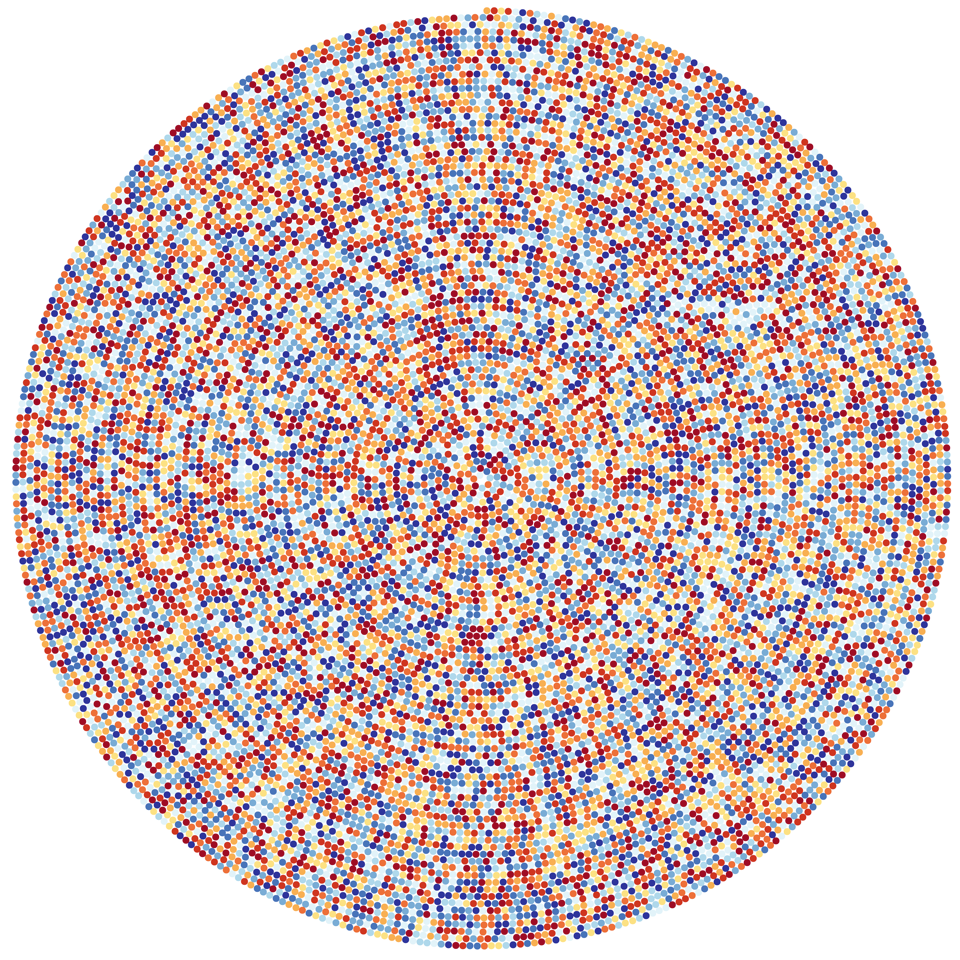

3.14159265358979323846264338327: the first 30 digits of pi. Happy Pi Day! (see how science artist Martin Krzywinski turned the irrational number into colorful circular diagrams here)
1,315 times the diameter of the sun: the size of this yellow hypergiant star, one of the 10 largest stars ever discovered

8: the number of robotics companies recently acquired by Google (read about Google’s growing robot army here)

14 shots per second: the speed of this fully automatic rubber band gun

12 percent: the portion of U.S. electricity that comes from recycled heat, compared with Denmark’s 50 percent, Finland’s 39 percent, and Russia’s 31 percent
2015: the year Ukraine hopes to complete a new radar system

$15,000: the cost to build this lawnmower tank

200 volts: the charge produced when scientists tipped a tupperware container filled with flour back and forth until cracks appeared (read about how this could help solve the mystery of pre-earthquake lights here)
1952: the year computer scientist Alan Turing published a paper proposing a model for how cells change and develop—a theory scientists have recently validated with experimental evidence
$35,000: the total prizes in a NASA challenge to develop software that detects Earth-threatening asteroids (Computer programmers! Here’s how to enter)

